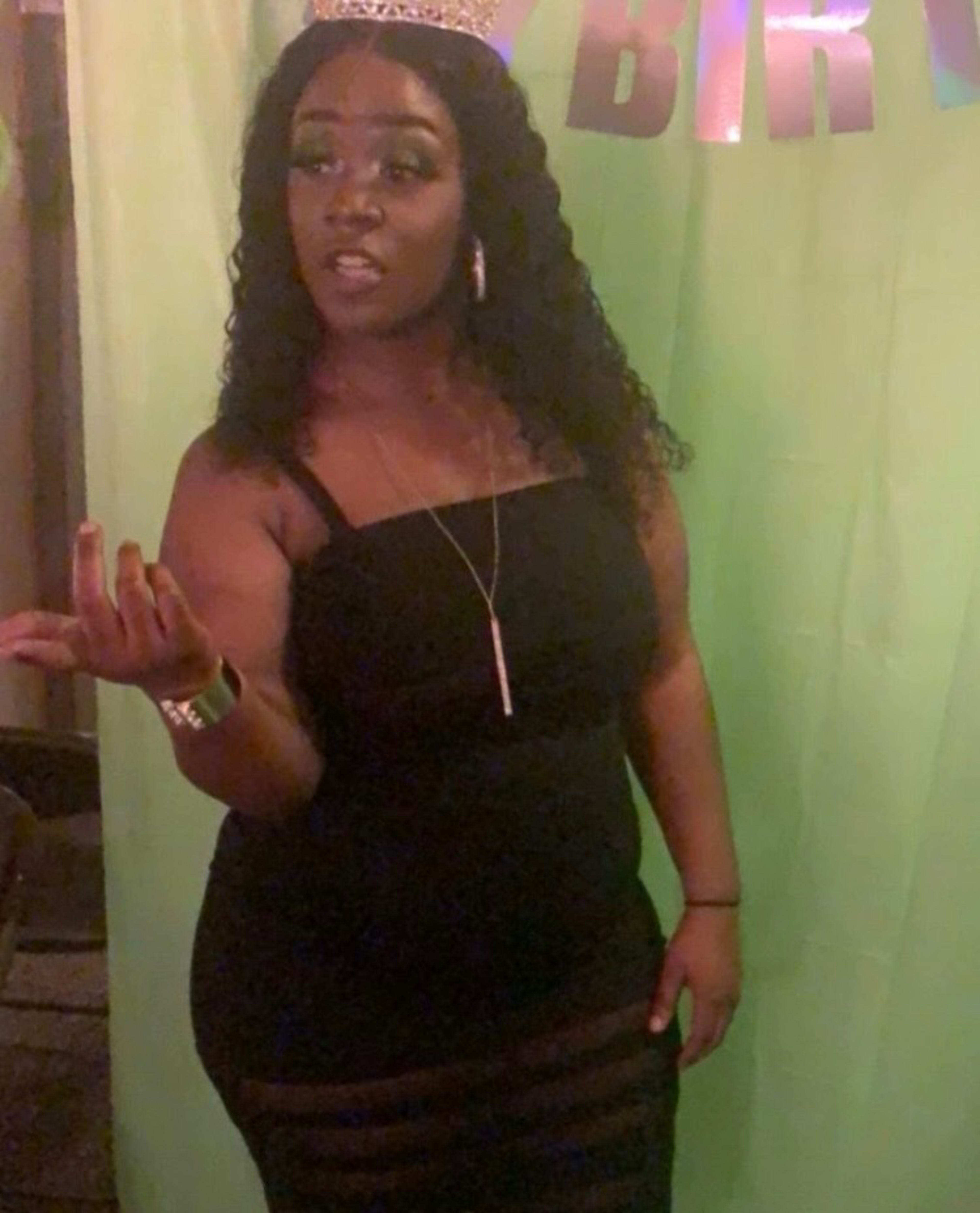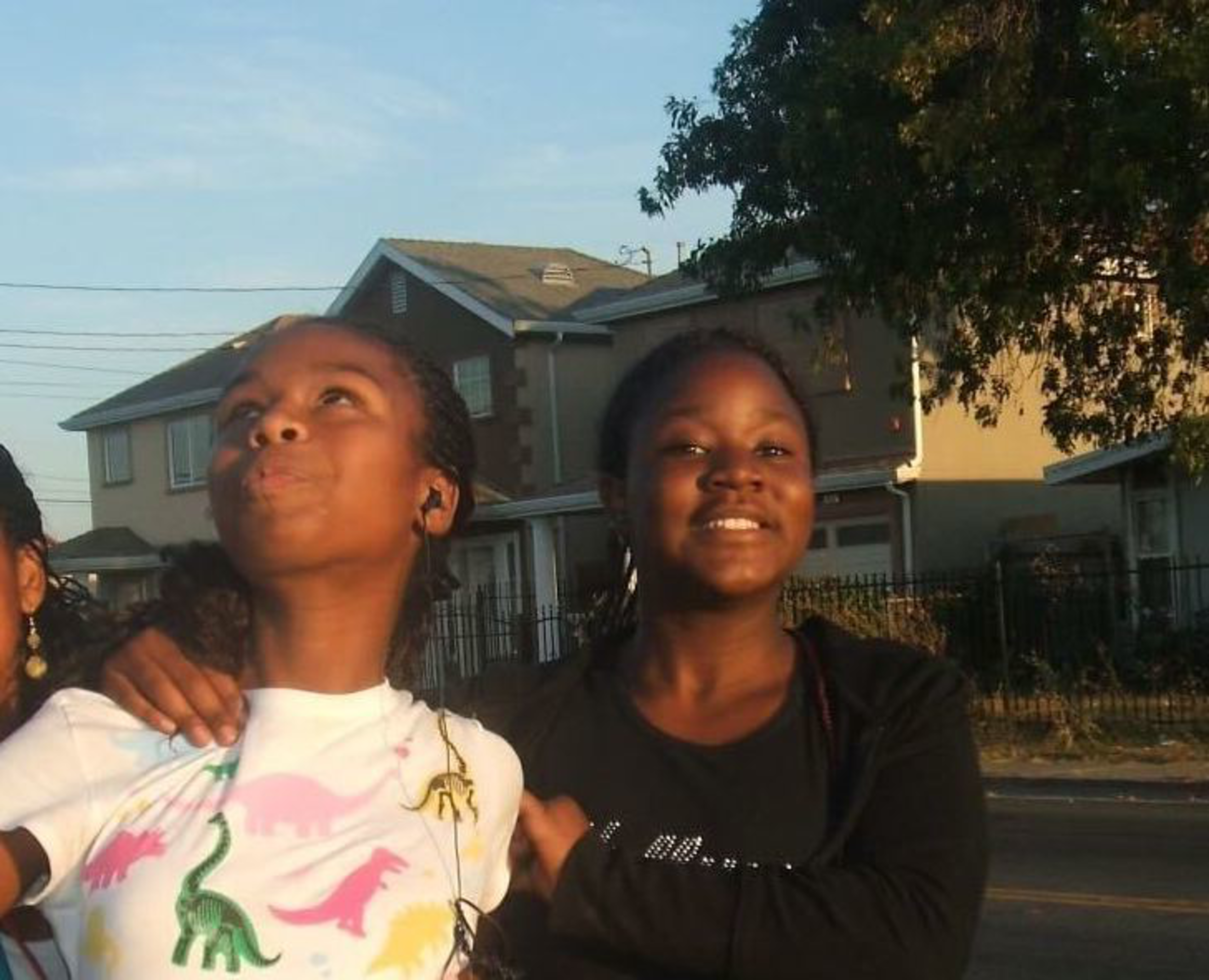Ryniqueka Dowell and her 6-year-old twin sons were driving through Rodeo last week when a car fleeing the police struck their vehicle. As it happens, Dowell was headed to meet with the mother of a friend who died in a car crash.
Erika Stitt—whose daughter Akilah Kelly died in that wreck a dozen years earlier—recalls something her son said as they waited for Dowell to show up.
“As I’m preparing to go walk out the door, my son calls me and says, ‘Mom, check her location.’ I said, ‘I can’t see the location,’ and he said, ‘I think she was in an accident.’”
Her son was right. That day, March 23, a high-speed chase ended tragically in the small East Bay town of Rodeo. A suspected car thief smashed into Dowell’s vehicle with an impact so violent that it flipped her car, killing the 31-year-old mother instantly and her son Jamari Humble a day later. His twin, Jamani, survived, Dowell’s aunt Takesha Moore said.
Their deaths led to murder charges for accused getaway driver Ralph Ellsworth White III, a 20-year-old from Vallejo. It also revived questions about when high-speed police pursuits are appropriate—and whether a stolen car justified the breakneck chase that came to a deadly conclusion in Rodeo.

In nearby Hercules, where an officer with the local police department initiated the chase, law enforcement has a policy that calls for caution with high-speed chases. Specifically, it advises officers to refrain from such chases over nonviolent misdemeanors. Many police departments bar chases outright, because they have led to deadly collisions.
Hercules police declined to discuss either the policy or whether the officer pursuing White, who was charged with possession of a gun, thought the suspect had used violence. If he did, it may be reflected in the charge accusing White of possessing an illegal firearm.
While it’s unclear whether violence preceded the chase, prosecutors say it certainly ended that way, in a wreck that gravely injured a child and claimed the lives of a mother and son.
From Foster Care to Social Work
Dowell’s death leaves a large group of people across the Bay Area mourning the loss of a close friend and family member admired for her grit and grace.
“She made a life for herself after all the stuff we’ve been through,” said Chanel Gaines, Dowell’s cousin.
Family and friends said Dowell, a Richmond native, came from a large family before ending up in foster care, where she witnessed violence and dysfunction. The time she spent in the system inspired her to make a career out of protecting children through social work.
A dedicated mother and partner, Dowell doted on her twins, who in turn looked out for each other. She taught her sons sign language when she found that they had autistic traits. When, to her delighted surprise, they began to speak, she put them in speech therapy, Moore said.
Jamari—“a smart, happy, cute kid”—was outgoing and liked to joke around, Dowell’s cousin Tyesha McCray said. He was inseparable from his twin, who he always kept on the right track.
Dowell had spent most of her earlier years surrounded by children in the home of her paternal aunt, Billie, and her husband L.T. Walker, who ran a wrecking yard. She called them her grandparents.
“It was actually fun,” Gaines said. “We wish we could go back to those days.”
But when her caretakers fell sick, the children had to be dispersed, some to family, some to the state.
“Once they left us, we all had to split,” Gaines said. “We didn’t really have moms or dads around.”
For Dowell, reuniting with her parents wasn’t an option. Her mother struggled with drug addiction while her father had been incarcerated her whole life. Dowell had only met him a few years ago. She was sent to the foster care system, Gaines said.
“Ryniqueka bounced around in foster care,” said Stitt, who often tried to help Dowell.

Despite the family’s separation, Dowell managed to keep in touch with relatives and even ran away in her teen years to find them. Gaines remembers meeting her at a BART station after one of her escapes to give her cell phone to Dowell.
In high school, Dowell was an active student involved in cheerleading and softball, McCray said.
But Dowell’s circumstances forced her to grow up fast.
At 16, she was emancipated from her parents and placed in an apartment of her own by the state, Gaines said.
She moved away from her family in the East Bay to attend Sacramento State University from 2010 to 2016, where she majored in American Sign Language and deaf studies.
After graduation, Dowell settled in the state capital, began working for Child Protective Services and had two sons with her high school sweetheart, Jeffrey Humble.
But she remained close to her Bay Area family, visiting often despite the two-hour drive each way.
Death was a constant in her family life. One of her cousins was gunned down years ago, not far from where Dowell died in the crash, Gaines said.
Dowell gave her heart to others in many ways.
She danced at funerals, made lanyards with the faces of the deceased and created waterproof grave coverings, Moore said.
Dowell’s family said her troubled childhood inspired her compassion and resilience.
“She had that type of heart,” Moore said. “It made her strong.”
Now, an Ocean Beach bonfire held every year to remember the friend who died in the 2011 crash will also become an occasion to mourn Dowell.
